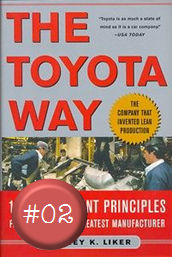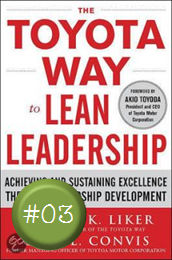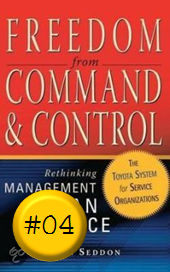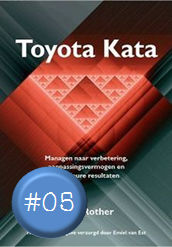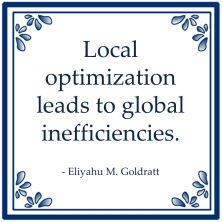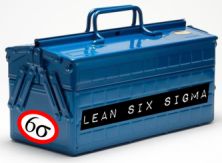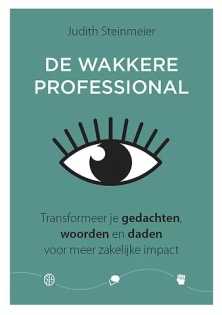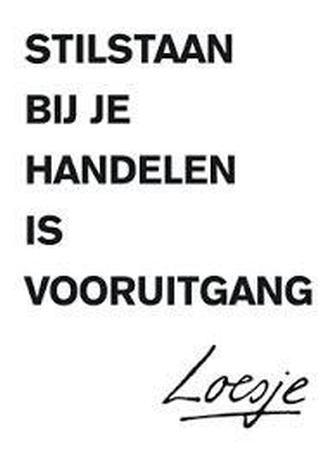
Erik de Haan onderscheidt in zijn boek Supervisie in actie - Handboek supervisie voor coaches en adviseurs 6 niveaus waarop je in een supervisiegesprek kunt reflecteren:

Supervisiegesprekken zijn erop gericht de juiste reflecties te vinden: reflecties waarbij de cliënten van de supervisant - en hun organisaties - baat hebben. Soms komt dit neer op nieuwe perspectieven ontwikkelen, of nieuw inzicht. Soms ook komt het neer op het loslaten van oude reflecties die vastzitten, of het bewegen naar een andere modaliteit van reflectie.
M. Caroll (2010) onderscheidt de volgende modaliteiten van reflectie:
1 Geen reflecties: gericht op zelf en op vasthouden aan het oude.
2 Empathische reflecties: gericht op de ander.
3 Relationele reflecties: gericht op relaties.
4 Systemische reflecties: gericht op samenhang en organisatie.
5 Zelfreflecties: gericht op de eigen persoon maar het eigen kader overstijgend.
6 Transcedente reflecties: opnieuw het eigen kader overstijgend, nu met betrekking tot al het voorgaande.
Bron: Supervisie in actie - Handboek supervisie voor coaches en adviseurs, Erik de Haan
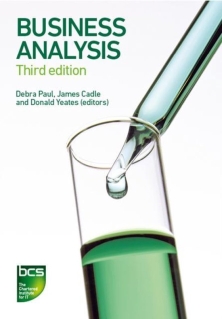
Business Analysis
Debra Paul, James Cadle & Donald Yeates (editors)
Bij Bol.com | Managementboek

Be careful with "continuous improvement" as this tends to overdrive the process. Improvement happens in batches, in increments, after studying a stabilized process.
L. David Marquet

Erik de Haan onderscheidt in zijn boek Supervisie in actie - Handboek supervisie voor coaches en adviseurs 3 functies van supervisie:

De kwaliteit van de adviseur wordt vooral bepaald door de kwaliteit van de reflectie op het eigen werk.
Supervisie geeft de adviseur of coach regelmatige ruimte voor reflectie, en een partner om reflectie te spiegelen, verbreden en verdiepen. Regelmatige supervisie is daarmee de beste kwaliteitsborging die we hebben voor adviseurs, begeleiders en coaches - en voor supervisoren zelf.
Supervisie heeft drie belangrijke functies:
(1) Ontwikkelaar (formative): door aandachtig waarnemen helpt supervisie om een objectieve, frisse kijken te onderhouden op de eigen casuïstiek en praktijk.
(2) Poortwachter (normative): door vrijmoedig en scherp te communiceren waar mogelijk conflicten bestaan met andere partijen of met beroepsethiek helpt supervisie om alert te blijven op eigen verantwoordelijkheid voor cliënten en professie.
(3) Verpleger (restorative): door zorgzaam, steunend en bemoedigdend te interveniëren helpt supervisie om gelijkmatiger en met meer energie de eigen praktijk tegemoet te treden.
Bron: Supervisie in actie - Handboek supervisie voor coaches en adviseurs, Erik de Haan

Toby Sinclair verzamelde 12 principes die een organisatie helpen bij het omgaan met complexiteit:

(01) Foster informal networks
The majority of organisational learning happens within informal networks. Learn to amplify these.
(02) Follow the golden rules of crisis management
Coordinate in centre. Don't make decisions. Communicate by engagement.
(03) Embrace sympoietic systems
It is important to remember how things connect are more important than what they are
(04) Use scaffolding
A temporary that can be used to help the emergence of desired outcomes
(05) Use temporal interventions
How long does the intervention need to exist for? Not all changes should be permanent.
(06) Distribute cognition and decision making
Put the power of organisational design into the power of people. Allow the design to emerge through self organisation
(07) Don't scrap the hierarchy
Be aware of both the formal hierarchy and also the informal network
(08) Lower energy needed for change
Organisations with a lower energy gradient can enable faster learning.
(09) Increase adaptive capacity
Adaptive Capacity is like a budget. When you use it all the organisation can become very rigid and freeze
(10) Don't outsource the design
Often leads towards homogenous. monocultural organisational design
(11) Manage constraints
Identify constraints. change constraints, see what happens. Find out which constraints which are brittle and what the impact of change is.
(12) Enable resilience and robustness
A system which is robust survives unchanged. A system which is resilient survives with continuity over time.
Bron: 12 Organisation Design Principles that Embrace Complexity, Toby Sinclair
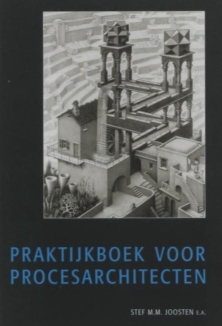
Praktijkboek voor procesarchitecten
Stef Joosten
Bij Bol.com

Leaders who don't listen will eventually be surrounded by people who don't speak.
Andy Stanley
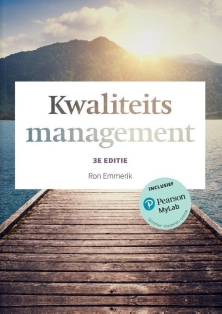
Kwaliteitsmanagement
Ron Emmerik
Bij Bol.com | Managementboek

Ralph Douglas Stacey betoogt in zijn artikel Learning as an Activity of Interdependent People dat organisaties eigenlijk niet kunnen leren:

“For me, the claim that organisations learn amounts to both reification and anthropomorphism. I argue that organisations are not things because no one can point to where an organisation is – all one can point to is the artefacts used by members of organisations in their work together. In our experience, the organisation qua organisation arises as the patterning of our interactions with each other.
(...)
Since an organisation is neither inanimate thing nor living body, in anything other than rather fanciful metaphorical terms, it follows that an organisation can neither think nor learn.
Bron: Learning as an Activity of Interdependent People - Ralph Douglas Stayey, in: The Learning Organization (December 2003)
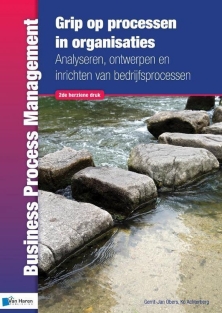
Grip op processen in organisaties
Analyseren, ontwerpen en inrichten van bedrijfsprocessen
Gerrit-Jan Obers, Ko Achterberg
Bij Bol.com | Managementboek
![]()















